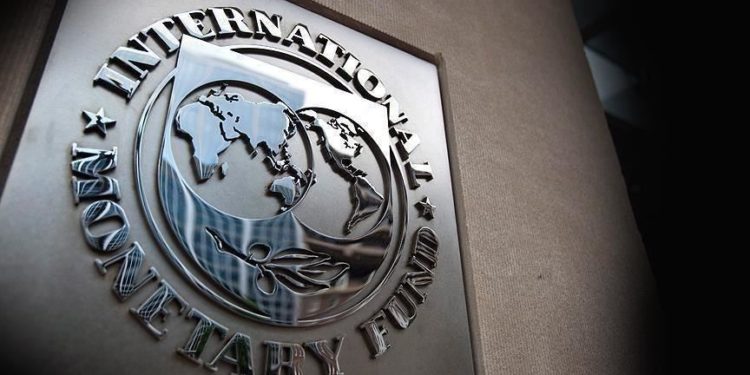The International Monetary Fund (IMF) has approved the disbursement of $USD1 billion for Ghana to be drawn under the Rapid Credit Facility (RCF).
The greenlight for the approval was given by the Executive Board of the IMF on Monday, April 13, 2020.
A statement issued on the IMF’s website says the disbursement is to help Ghana address the urgent fiscal and balance of payments needs that it is facing, to improve confidence, and catalyse support from other development partners.
“The Covid-19 pandemic is already impacting Ghana severely. Growth is slowing down, financial conditions have tightened, and the exchange rate is under pressure. This has resulted in large government and external financing needs. The authorities have timely and proactively responded to contain the spread of the Covid-19 pandemic in Ghana and to support affected households and firms”. The IMF stated.
While at it, the IMF says it will however continue to monitor Ghana’s situation closely “and stands ready to provide policy advice and further support as needed”.
Revenue shortfall
The Finance Minister had earlier said Ghana will record a significant drop in revenue target for the year due to the outbreak Covid-19 viral disease.
He explained that the country is recording a huge decline in revenue from imports, petroleum receipts and taxes due to economic slowdown, the world over, in the wake of the covid-19.
He stated that import duties will, for example, fall short of target by GHS808 million for the 2020 fiscal year.
According to him, this is as a result of “the anticipated decline in import volumes and values, as well as the slowdown in economic activities.”
Budget deficit
In line with this, the Finance Minister, Mr Ken Ofori-Atta, announced in Parliament on Monday, March 30, 2020, that government will require 9.5 billion cedis to fight the COVID-19 pandemic.
However, the situation, according to the Mr Ofori-Atta may increase the 2020 budget deficit to over 7 percent.
“We have to re-look at all the fundamental assumptions of the budget, and I did signal to Parliament that come July, there would be a lot more information and analysis to determine what is the new normal and how do we address the thing that invariably is going to occur?
“You remember in the first budget we spoke about the preferential option for the poor, remove these taxes and let people do what they want and now we are just coming down to the bottom of the Maslow theory, and we are saying keep body and soul together. At the same time make sure infrastructure is being managed,” he said.
IMF says Covid-19 pandemic is impacting Ghana severely
Subsequent to the approval for the $1bn facility, the Deputy Managing Director and Chair of the IMF, Tao Zhang, in a statement, said the coronavirus pandemic is severely impacting on Ghana due to the projected slow down in economic activities.
“The Covid-19 pandemic is impacting Ghana severely. Growth is projected to slow down, financial conditions have tightened, and the exchange rate is under pressure. The budget deficit is projected to widen this year given expected lower government revenues and higher spending needs related to the pandemic.
“The Fund’s emergency financial assistance under the Rapid Credit Facility will help address the country’s urgent financing needs, improve confidence, and catalyze support from other international partners”, he said.
He added that “the uncertain dynamics of the pandemic creates significant risks to the macroeconomic outlook. Ghana continues to be classified at high risk of debt distress”.
However, he admitted that authorities in Ghana remain “committed to policies consistent with strong growth, rapid poverty reduction, and macroeconomic stability over the medium-term”.
“Additional support from other development partners will be required and critical to close the remaining external financing gap and ease budget constraints”, he added.
The IMF’s Rapid Credit Facility
The IMF’s Rapid Credit Facility provides rapid concessional financial assistance with limited conditionality to low-income countries facing an urgent balance of payments need.
It was created under the Poverty Reduction and Growth Trust as part of reforms to make the Fund’s financial support more flexible and better tailored to the diverse needs of low-income countries, including times of crisis.
The facility places emphasis on the country’s poverty reduction and growth objectives, according to the IMF.
Access to facility financing is determined on a case-by-case basis, taking into account the country’s balance of payments need, the strength of its macroeconomic policies, capacity to repay the Fund, the amount of outstanding Fund credit, and the member’s record of past use of Fund credit.
In addition, it also takes into account the size and likely persistence of the shock.










